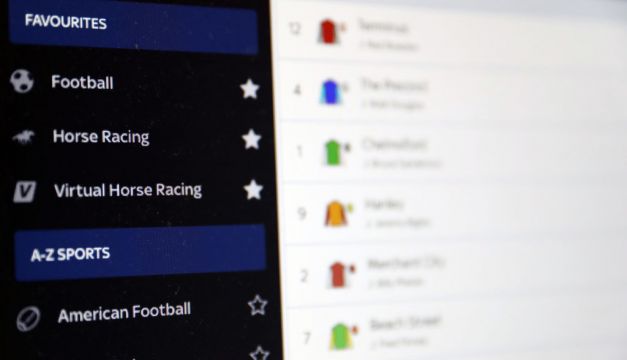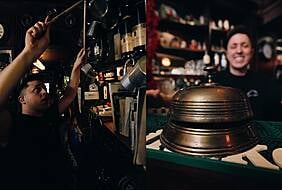Gambling is increasingly regarded as a normal part of sport by Irish children due to the high level of exposure they experience of gambling marketing, according to the findings of a new study.
Research by a team of academics on both sides of the border found evidence of the pervasiveness of gambling marketing via social media but also in conversations among young people themselves and displays in betting shops.
“These myriad forms of exposure indicate a saturation of gambling communications in these children’s lives,” the study observed.
While many children felt that sport and gambling were a good fit, they were aware of the financial risks.
However, the research found few understood the wider social risks relating to the harm caused by gambling.
The authors of the study, whose findings are published in the medical journal, BMC Public Health, said they aimed to explore the exposure and understanding of gambling marketing by children against a background where such marketing was ever increasing with young people being increasingly aware of gambling brands.
They also wanted to establish the views of children on tactics used by gambling firms to market their products.
The research involved six face-to-face focus groups with 51 teenagers aged 14-17 in the Republic and Northern Ireland living near the border with a declared interest in watching sports broadcasts.
One of the report’s main authors, Paul James Kitchin, said understanding how exposure to gambling messages shaped the perception of young people about the relationship between sport and gambling was vital for policy makers to better shape related legislation and regulations.
Dr Kitchin, a senior lecturer at Ulster University’s School of Sport, said it was also important for informing parents and educators with public health messaging particularly in the context where other studies had shown that 3.3 per cent of adults in the Republic and 2.3 per cent of adults in Northern Ireland had experienced harm from gambling.
In addition, separate research found 23 per cent of 16-year-olds had gambled for money in the previous 12 months, of whom 1 in 10 met the criteria for excessive gambling.
The findings of meetings with the focus groups, which were held in Derry, Letterkenny and Newry, showed the majority of teenagers did not consume their sports via mass media but through social media platforms.
Many reported witnessing gambling marketing on multiple social media channels including TikTok, Instagram, Snapchat and particularly, YouTube.
Many also recalled gambling messages which included endorsements from celebrities as well as shirt sponsorship by gambling companies.
Several teenagers claimed informal chatter about gambling increased during high-profile sporting events such as football.
When shown photos of a sports jersey with sponsorship from three well-known brands – a communications company, a fast-food provider and a gambling firm – four of the six focus groups identified the gambling firm as the most suitable sponsor with five groups ranking the fast-food company as the least suitable.
The study found the children consistently identified the perceived target audiences for gambling marketing to be anyone else but them and did not recognise that they might be the potential target.
The focus groups also demonstrated a high level of recognition of a celebrity influencer shown in a number of poster advertisements to promote gambling but without the name of the brand being hidden.
However, some teenagers also demonstrated resistance to some communications and the glamourisation of gambling, while a few were dismissive of gambling and claimed it was unappealing.
The study said it found children used social media purely to relieve boredom and viewed gambling as an increasingly normal part of sport.
“Our data revealed that they perceived gambling operators as commercial sponsors with a good fit between what they sell and the products they sponsor,” said Dr Kitchin.
He added: “As such, this exposure is at best inadvertent, or at worst deliberate, brand positioning in young consumers’ minds.”
However, Dr Kitchin warned: “A broader public health risk is that if children who follow sports feel that gambling is a normal part of sports and that they follow and are influenced by personalities in social media, then current regulations are woefully unprepared to counteract this.”
The study also noted that familiarisation with gambling marketing could lead to an increased change of underage experimentation with gambling during adolescence.
“There is a pressing need for governments in both regions to develop robust legislation that positions gambling and its personal, social and community-level harms as a public health issue,” it concluded.







